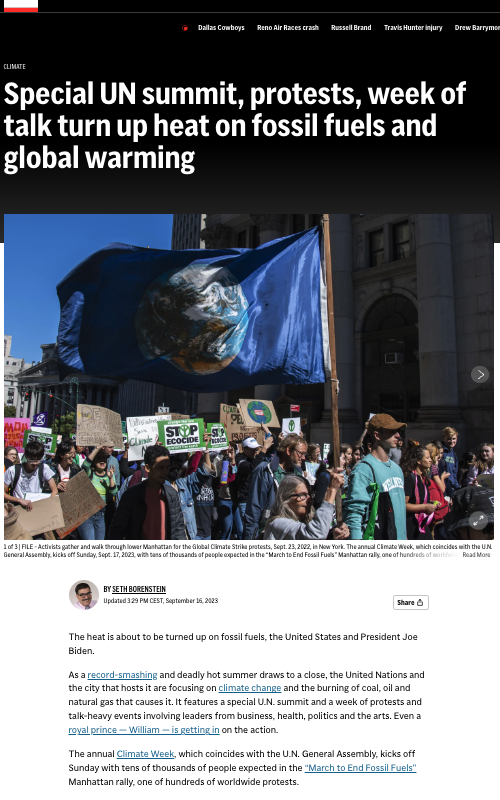Media coverage
Share
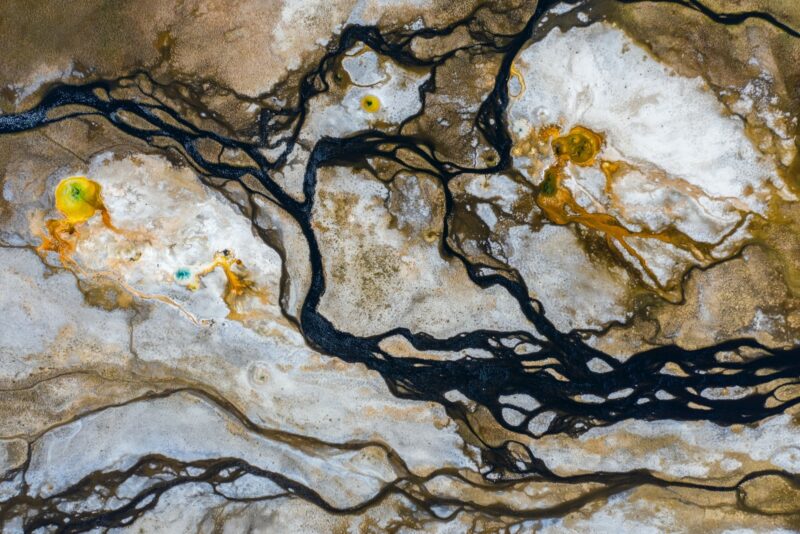

Zeit Online
Claire Fyson told Zeit Online said it was "absurd" to continue investing heavily in gas and coal power.
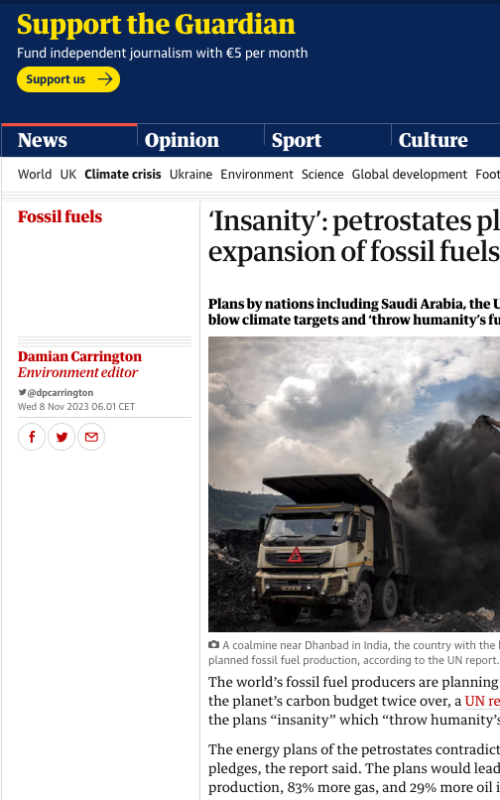
The Guardian
Neil Grant told The Guardian “Despite their climate promises, governments’ plan on ploughing yet more money into a dirty, dying industry".
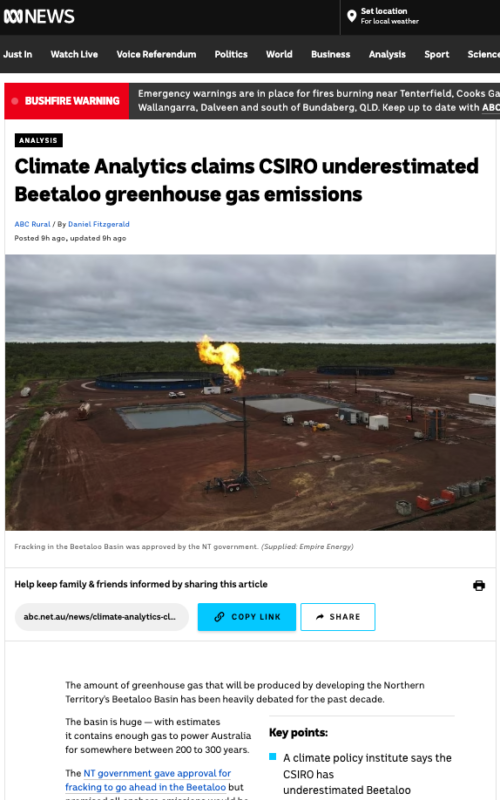
ABC News
Bill Hare speaks to ABC News about a fracking project in Australia's Northern Territory that has underestimated the greenhouse gas emissions from its planned activities.
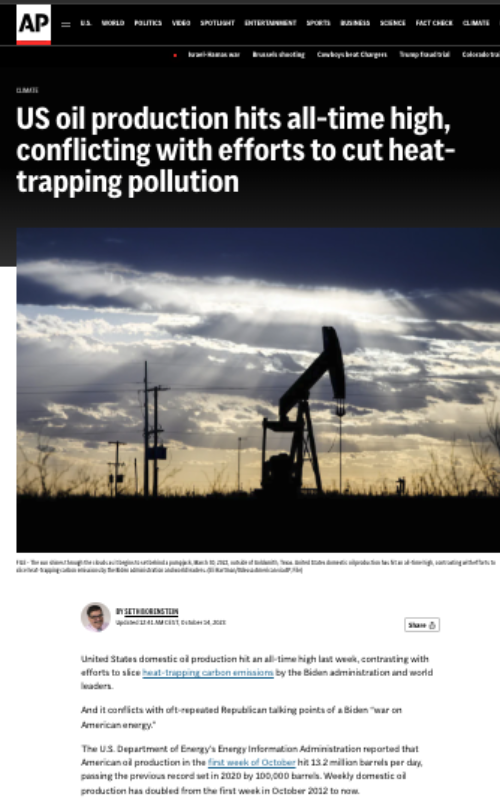
AP News
"Continuing to expand oil and gas production is hypocritical," Bill Hare told AP in the wake of expanded fossil fuel production in the US.
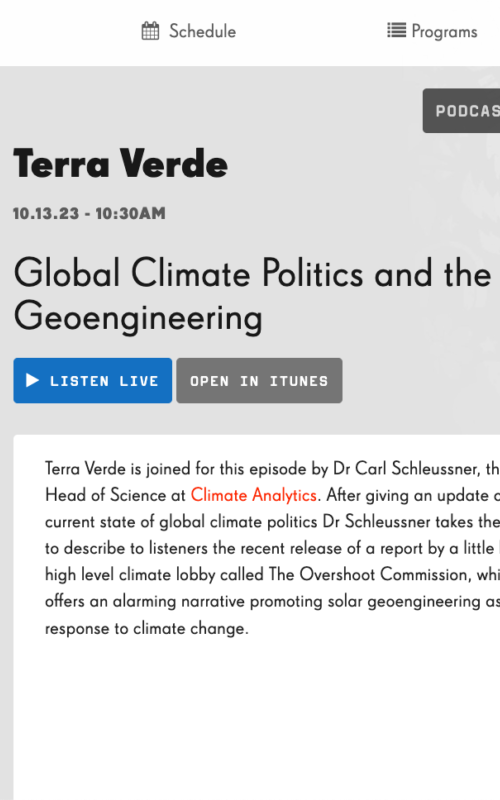
Terra Verde, 94.1 KPFA
Dr Carl-Friedrich Schleussner talks about a recent report by a little-known high-level climate lobby called The Overshoot Commission, which offers an alarming narrative promoting solar geoengineering as a response to climate change.
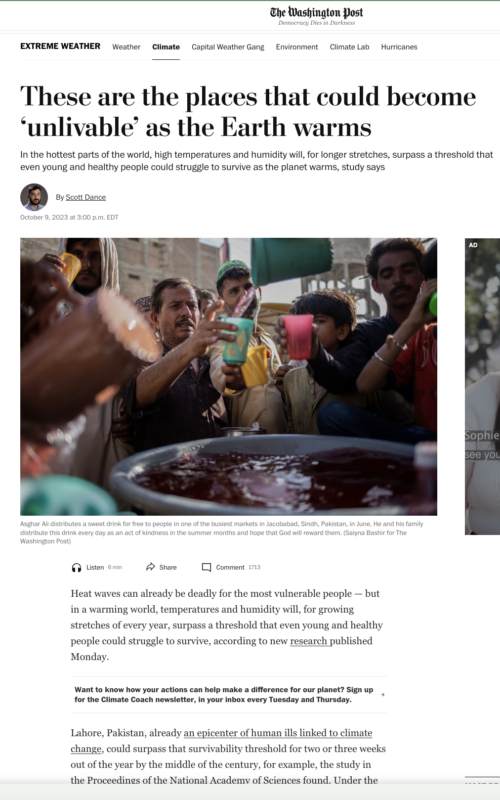
The Washington Post
Dr Fahad Saeed comments on new research on heat extremes in the Washington Post.
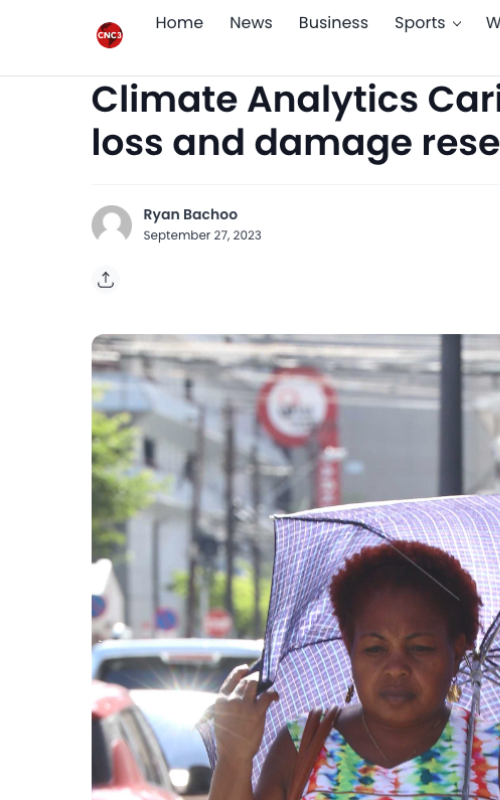
CNC3
CNC3 covers the launch of our first Caribbean Loss and Damage dialogue and research project, IsLanD Advancement.
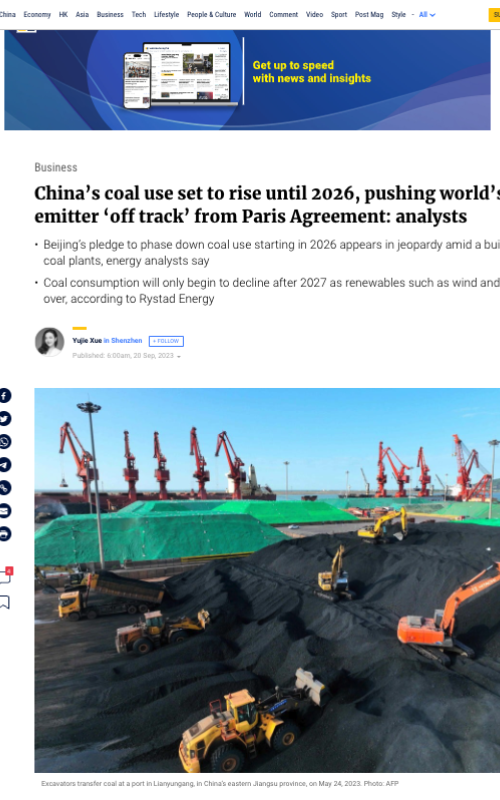
South China Morning Post
The Climate Action Tracker's latest report is covered by South China Morning Post.

